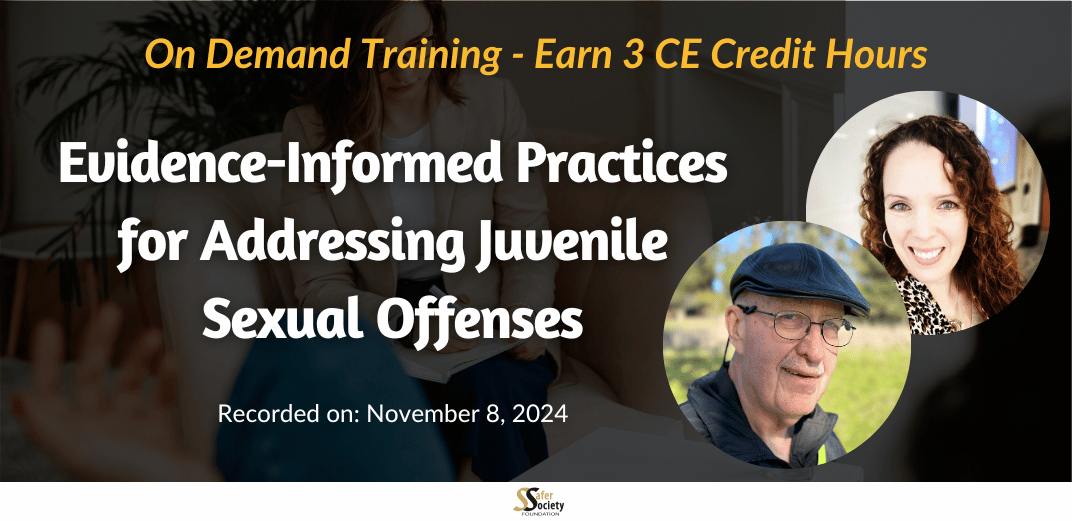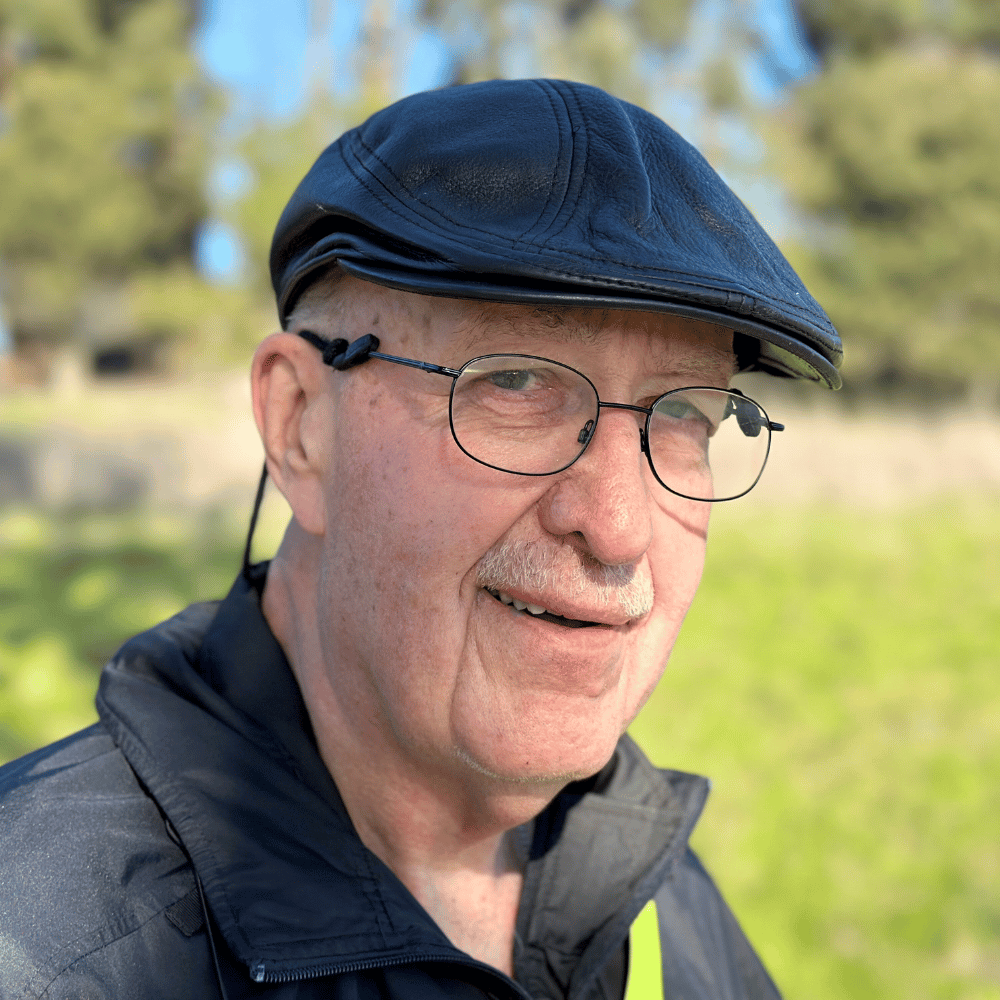
Evidence-Informed Practices for Addressing Juvenile Sexual Offenses
Already purchased an On Demand training?
Click here to access your Safer Society On-Demand Training Center account.
Staying informed about the latest research and practice innovations is essential for practitioners working with juveniles who have sexually offended. This training is designed to equip professionals with the knowledge and resources necessary to understand, assess, and treat adolescents who have sexually abused. By delving into emerging research findings and best practices, this training addresses the complexities faced by practitioners striving to implement the most effective policies and programs.
The training offers practical tools and focuses on key areas, including:
- Recidivism Insights: Discussion on the significance of sexual and overall recidivism rates among adolescents
- Adolescent Brain Development: Examination of research on brain development and psychosocial maturity’s role in sexual aggression, noting adolescence as a high-risk period for crimes, substance use, accidents, and other problematic behaviors.
- Causal Factors: Analysis of modifiable risk factors in juvenile sexual abuse, such as the effects of prior adverse experiences, psychiatric conditions, and learning challenges.
- Collaborative Models: Strategies for collaboration between the youth, family, probation officer, and treatment provider.
- Assessment Tools: Identification of risk factors that can and can’t be modified.
- Effective Treatment Programs: Emphasis on principles and components of effective treatment models, focusing on program quality and fidelity issues, not necessarily specific “name-brand” programs.
- Scalable Treatment Programming: Description of treatment programming that can be readily implemented at scale and in a “therapist-friendly” fashion.
- Outcome Tracking Models: Presentation of practical models currently used to track program outcomes, providing useful tools for practitioners, programs, and other stakeholders.
By participating in this training, practitioners can significantly enhance their ability to make a positive impact on the lives of juveniles, contributing to a more effective and compassionate juvenile justice system.
1) Identify the distinctions between sexual and nonsexual recidivism to enhance intervention strategies.
2) Discover how adolescent brain development impacts harmful behaviors and informs prevention efforts.
3) Identify two assessment tools specific to adolescents who have sexually abused.
4) Analyze two treatment approaches designed to support the rehabilitation of adolescents who have sexually abused.
Audience
This training is for professionals—including social workers, psychologists, counselors, probation officers, case managers, and other mental health professionals—who work with adolescents in the juvenile justice system for sexual offenses.
Content Level
Disclosure
Continuing Education Approval
American Psychological Association (APA)
Safer Society Foundation, Inc. is approved by the American Psychological Association (APA) to sponsor continuing education for psychologists. Safer Society Foundation, Inc. maintains responsibility for this program and its content.
Who's Presenting

Norbert Ralph, PhD, MPH
Dr. Ralph is a clinical psychologist, formerly at the Juvenile Justice Center in San Francisco, and Coordinator of the Juvenile Sexual Responsibility Program. Dr. Ralph is a psychiatric epidemiologist and neuropsychologist who has over 50 publications, including articles, book chapters, blogs, and books.
He was formerly Associate Clinical Professor in Family Practice, University of California School of Medicine at Davis, and Lecturer and Research Biostatistician in the Program in Maternal and Child Health, School of Public Health, at the University of California, Berkeley. He is a Trainer for Aggression Replacement Training through the California Institute for Mental Health. He completed the Transformative Leadership Vanguard Program through the University of Cincinnati Corrections Institute in 2025.
He is a board member of CalATSA and was formerly on the Prevention Committee of ATSA. He is on the Conference Committee of the Forensic Mental Health Association of California. He is the juvenile treatment representative on the California Sex Offender Management Board and contributed, along with other board members, to their 2022 Youth Guidelines.

Mikaela Vidmar, MSc, Reg Psych (Canada), MA, Psy Assoc (California)
Mikaela Vidmar has been a registered clinical and forensic psychologist in Canada for the past twenty years where she has specialized in comprehensive psychological risk assessment and treatment of sexual and violent offenders. She has worked with multiple populations including inpatient, outpatient, and incarcerated. Her areas of expertise and interest include psychopathy, pedophilic arousal disorders, personality disorders, internet-facilitated offending, the impact of sexual abuse on victims, and rare paraphilic disorders. She contributed to the development of a treatment program and manual for people who have engaged in illegal sexual behaviors which won multiple honors including the National Award of Excellence in Mental Health. Ms. Vidmar has been recognized as an expert witness in Provincial and Supreme courts (of Canada) in addition to Family and Juvenile courts. She has additionally provided consultation to lawyers, judges, Family and Children Services Aid, the RCMP and provincial police, foster parents, probation and parole officers, staff at women’s shelters and rehabilitative programs, and numerous other professionals and stakeholders. She has been an instructor at Mount Saint Mary’s University since 2017, and with The Chicago School of Professional Psychology since 2021, in addition to maintaining clinical practice in the Southern California area.
